REMEMBER THE HEROES
Stories of courage from the Christchurch terror attacks
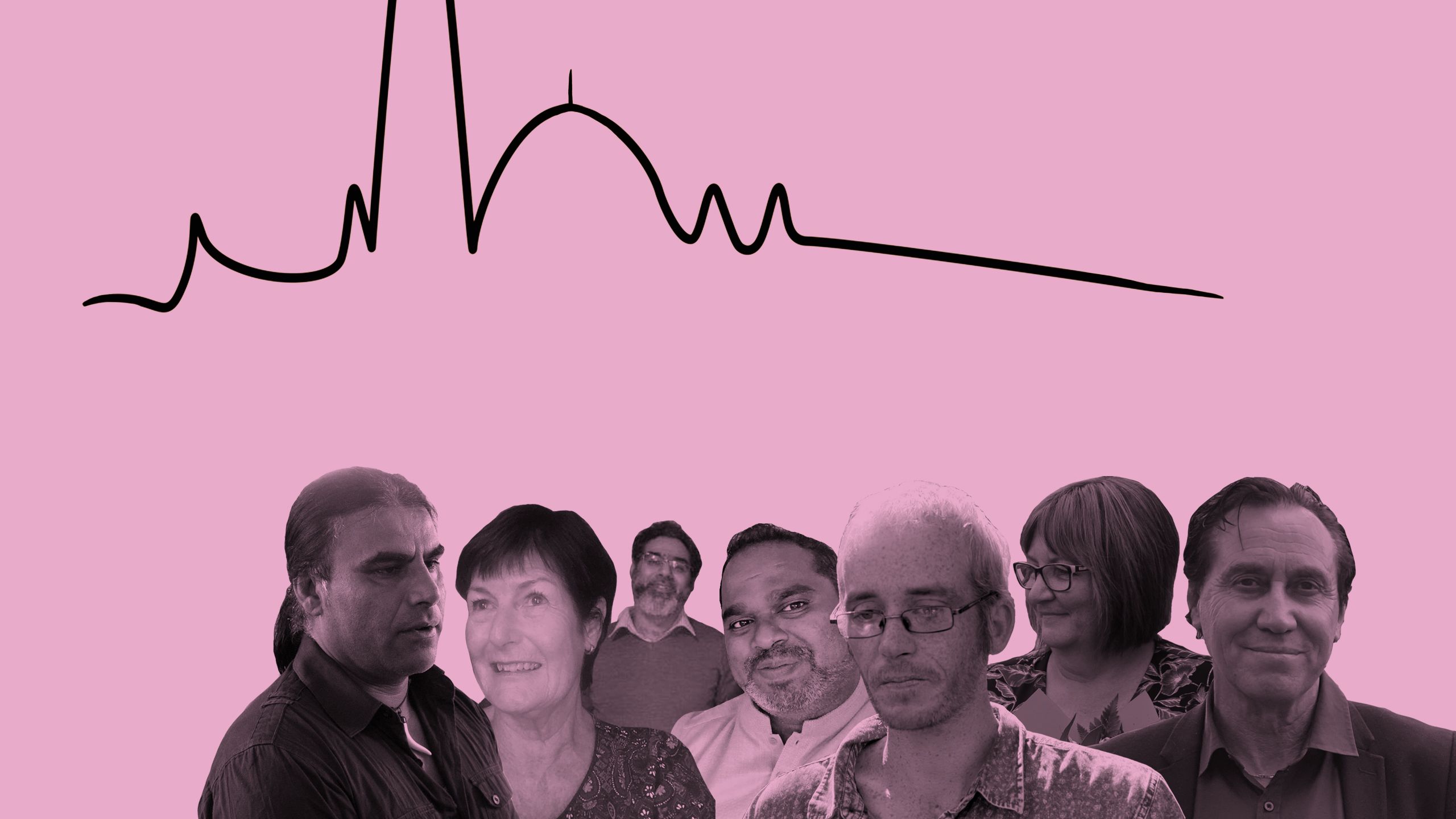
Horror and hatred killed 50 people in the Christchurch mosque massacre. Courage and kindness protected many more. Kate Newton reports on the ordinary people who found themselves doing extraordinary things.

Before it was even over, while details were still emerging and the enormity was just becoming clear, the stories started trickling in. A man who held a dying man in his arms. A passerby who took a critically injured little girl to hospital. People who opened their doors and ushered others fleeing for their lives, barefoot and terrified, into their homes.
Even more unthinkable: those at the two Christchurch mosques who stood and faced the man who had come to kill them - tackled him, pursued him - and in some cases, died doing so.
During a sermon preached in Hagley Park a week after the gunman killed 50 people, Al Noor mosque imam Gamal Fouda thanked police, paramedics and other first responders. “You put our lives before your own, every day,” he said.
But there were ordinary people he thanked too: “Thank you to the neighbours, for opening your doors to save us from the killer. Thank you to those who pulled over their cars to help us.”
Like others who came to the aid of those fleeing the mosque shooter, Jennifer Paterson was swept up in events before she even fully understood what was happening. “People who say they couldn’t do it - they could. They could hop out of their car and run across the road like I did.”
“I’m not very courageous - but something just takes over.”
Ahmed Iqbal Jahangir
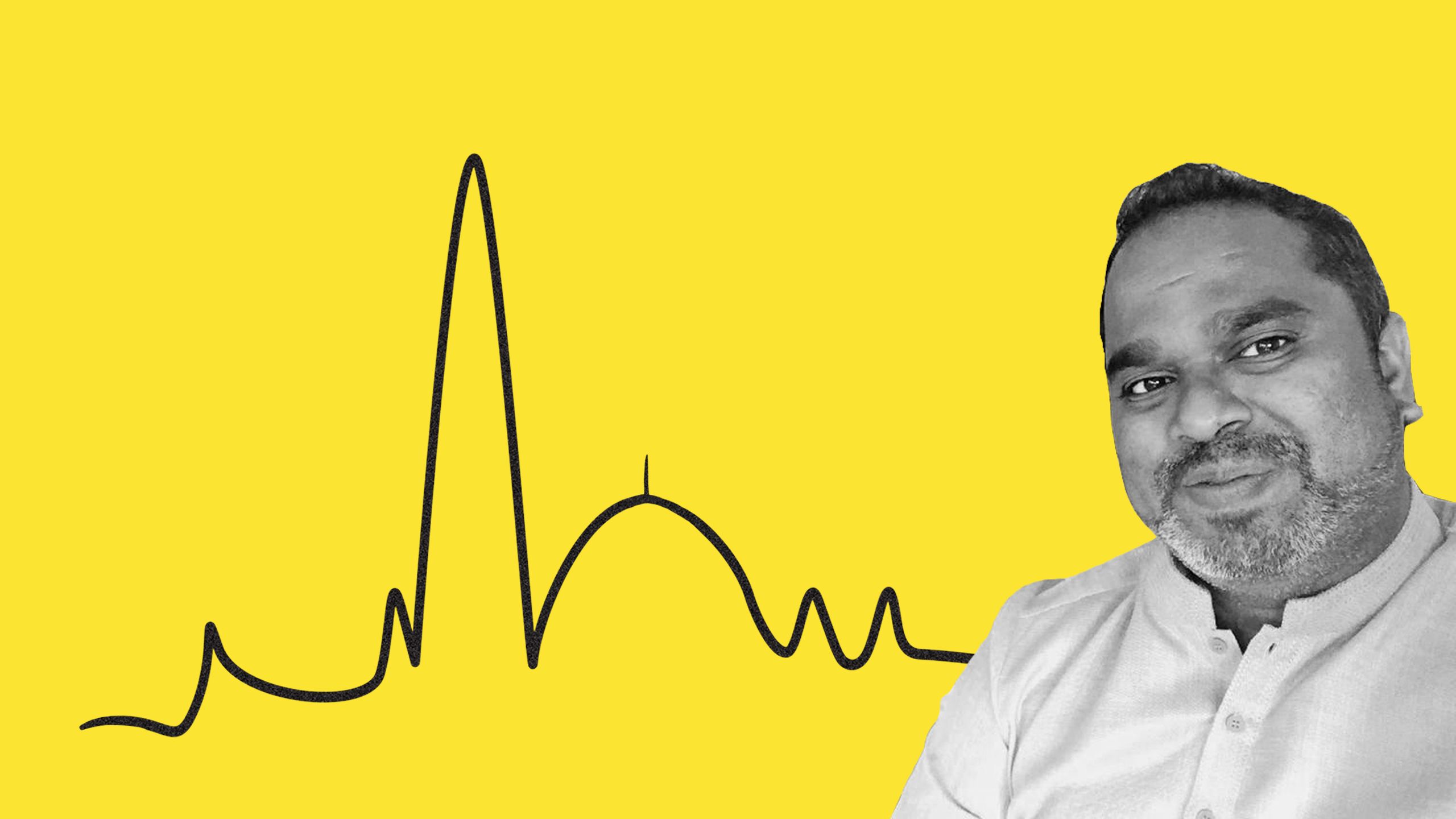
Ahmed Iqbal Jahangir’s voice is strained and hoarse. Each word costs him something. He’s been properly conscious for a week but he hasn’t slept much the past three days in hospital. The pain in his shoulder is all-consuming. “They’ve told me, all days are not the same,” he says. “You’ll have good days, and you’ll have very bad days.”
Jahangir faces at least two more surgeries to piece together and replace the shattered bones and nerves in his shoulder, where the gunman shot him point-blank at the entrance to the main prayer room at the Linwood Mosque. He may never again be able to use his right hand.
Jahangir had been in the back row of the men’s section on 15 March, with the women partitioned off in a separate area immediately behind him. As he prayed, one of his Muslim brothers started shouting that someone was shooting. Without knowing where the shooter was, Jahangir immediately went to check on the women. “I just asked all the ladies to get down and hide themselves in the corner. They’re not too far from the main door and I said, you all need to be quiet.”
His hope was that if they remained still and didn’t make a sound, the gunman might not even notice the separate partition. As he came back out, he glanced round - and found himself standing right in front of the shooter. There was no time to react. The man shot him and then Jahangir was on the ground.
Blood filled his mouth, he recalls. “After a while I struggled a lot to keep myself awake and not go unconscious.” After what seemed like a long time, the shooting stopped. Police arrived, then paramedics. There was an ambulance ride - that much he remembers - and after that, oblivion.
Had the women tried to flee the same way he did, rather than stay huddled behind the partition, Jahangir believes many of them would have been gunned down too. “If the women had started coming from there, he would have shot everyone. By the grace of the almighty, most of the women were saved.”
Jennifer Paterson
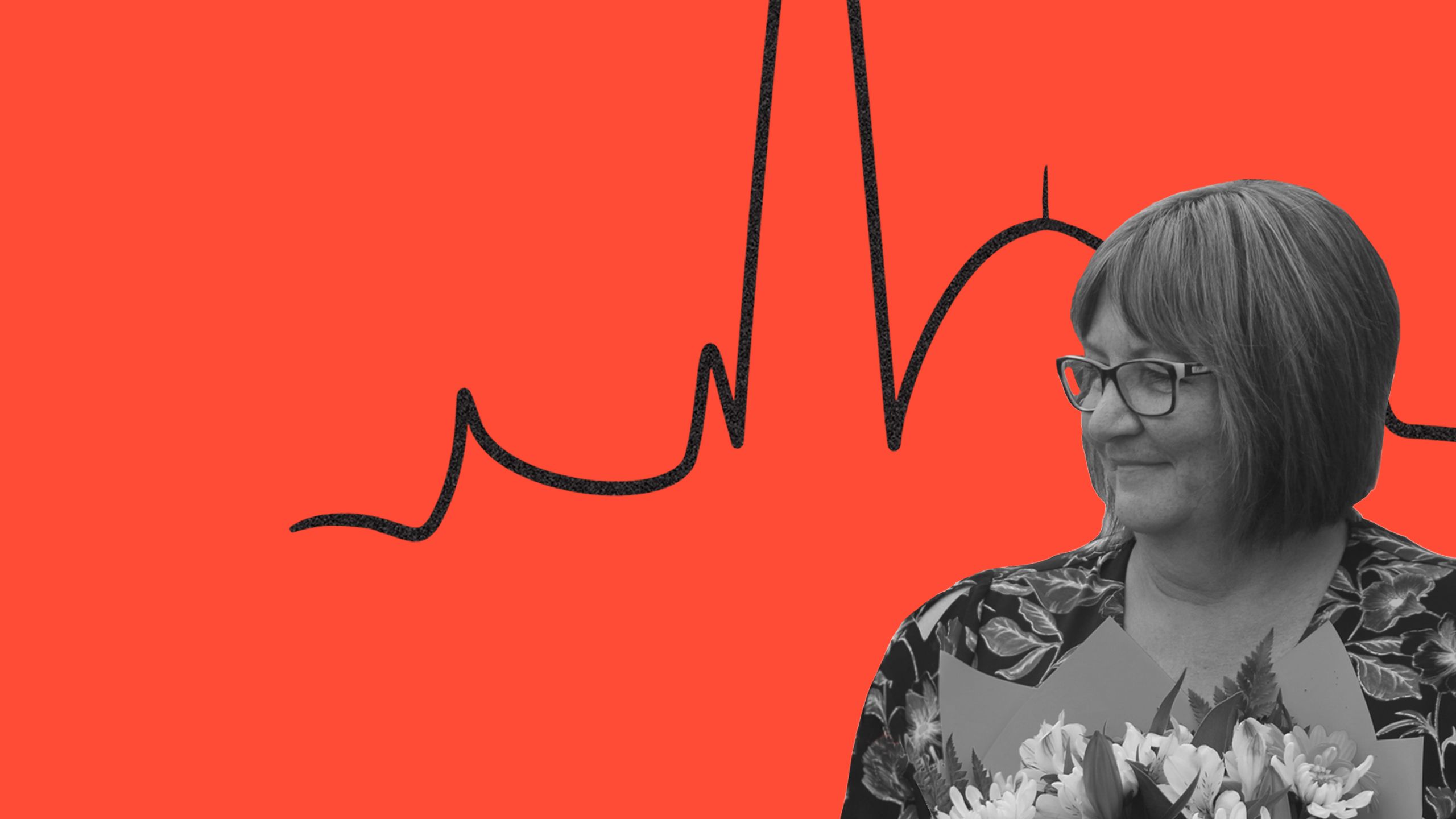
Driving south down Deans Avenue, Jennifer Paterson heard the gunshots first. To her, they sounded like fireworks, and - this horrifies her now - she recalls thinking that maybe there was a party going on.
As she approached Al Noor Masjid though, there were people running, panicked, from the mosque. The car in front of her slowed and stopped. So did Paterson.
Before she had pieced the scene together in her mind, Paterson spotted her: a young woman - “a girl” - fleeing down the road, clutching her baby as she ran. “I didn’t even think,” Paterson said. “I jumped out of my car, grabbed her and ran her back across to my car.”
Sitting in the car, the woman - Majda El Hajji - told Paterson what had happened. “She was saying people were being killed, her husband was in the mosque,” Paterson said. “I thought, one of us needs to keep it together, so I kept it together to keep her calm.”
Outside the car it was bedlam. “People were driving around us not stopping and so I couldn’t move and I didn’t know where this [gunman] was. A bus came along and I yelled at them to stop, there’s been a shooting. I’ve since found out that it was the Bangladesh cricket team.”
As Paterson was standing in the road, a man with a gunshot wound to his shoulder came running up looking for help. “Another one came running across to me and was shot in the leg - he grabbed me so hard I’ve got bruising on my arm, although I didn’t notice it at the time.”
A driver who had stopped two cars back from Paterson agreed to take the men to hospital and helped them into his car. Paterson ended up with another three passengers - two women and an 11-year-old boy. The young boy was beside himself, convinced his father must be dead. “He kept saying he wanted a hug so I kept giving him hugs. It was terrible.”
With cordons already set up either side of the mosque, Paterson couldn’t even drive the few hundred metres to her own house. Instead, she pulled into a cul de sac off Deans Ave, where it seemed safe. “This lovely lady, Barb, came out of her house and said, ‘Come inside.’”
Cathy White
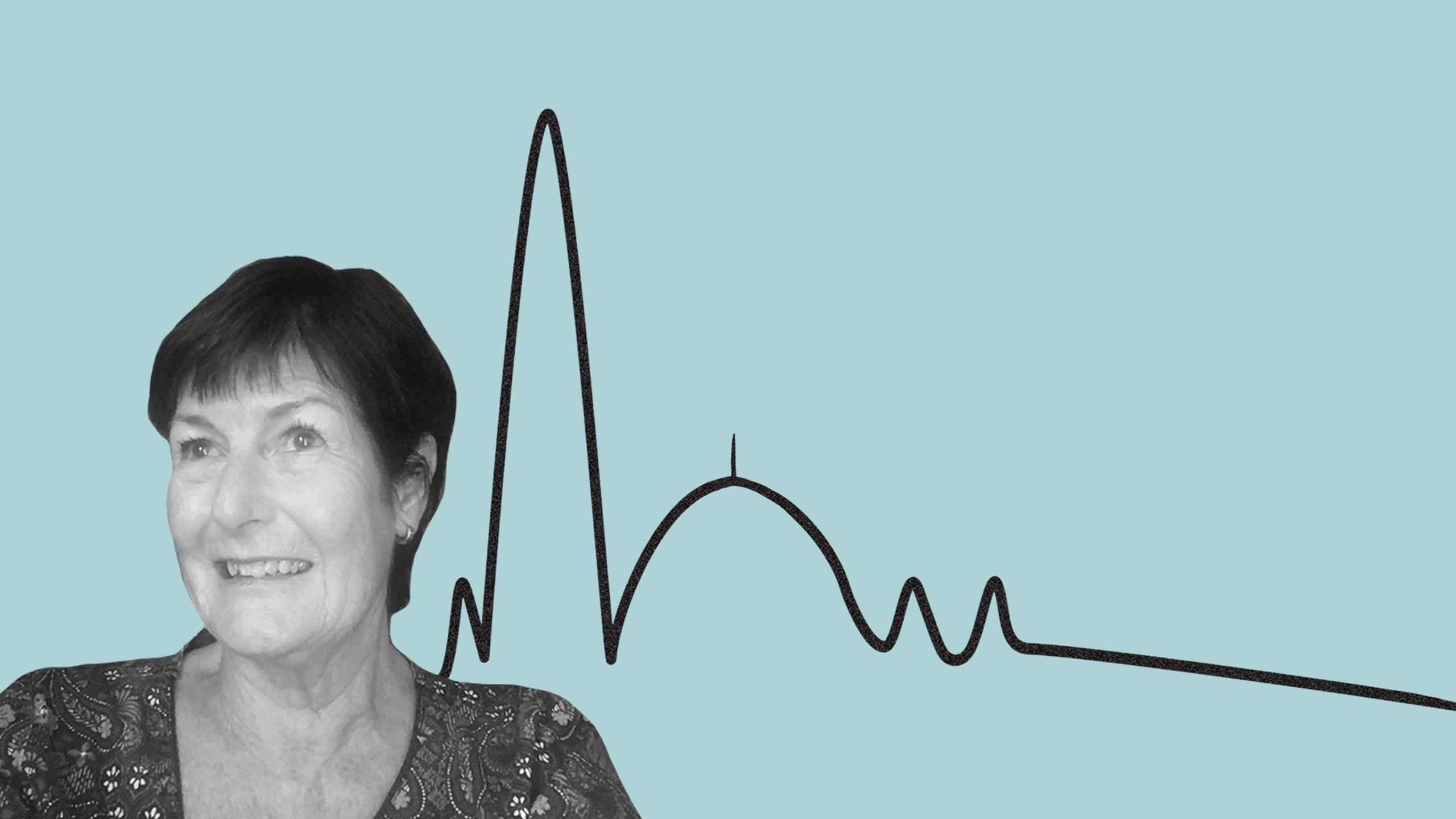
Just a few doors down, Cathy White had been standing at the kitchen bench of her house in a cul de sac off Deans Avenue, getting her lunch ready for work that afternoon, when she noticed a woman trying to reverse her car in the driveway.
White was used to the street filling with cars just before Jumu'ah prayers at Al Noor mosque on Fridays, and figured the woman was trying to find a park before the service. But as she watched from the window, she too heard shots.
Grabbing her phone and dialling 111, White went to the front door and called to the woman sitting frozen in her car to come inside. “I was aware by then that there were people running everywhere.”
Among those running past were Mulki Abdiwahab, 18, and her mother, who had fled the mosque barefoot, hand-in-hand. “Everyone was in chaos, just running for their lives,” Abdiwahab said. She and her mother ran and ran and ran as the gunshots kept coming. "We were trying to find cover."
White, ushering the other woman from the car into her house, called out to them too: “Come in, come in.” Inside, the women pulled the blinds and checked the locks. They were in shock and kept saying the same thing over and over again, White remembered: “We just didn’t think this could happen in Christchurch.”
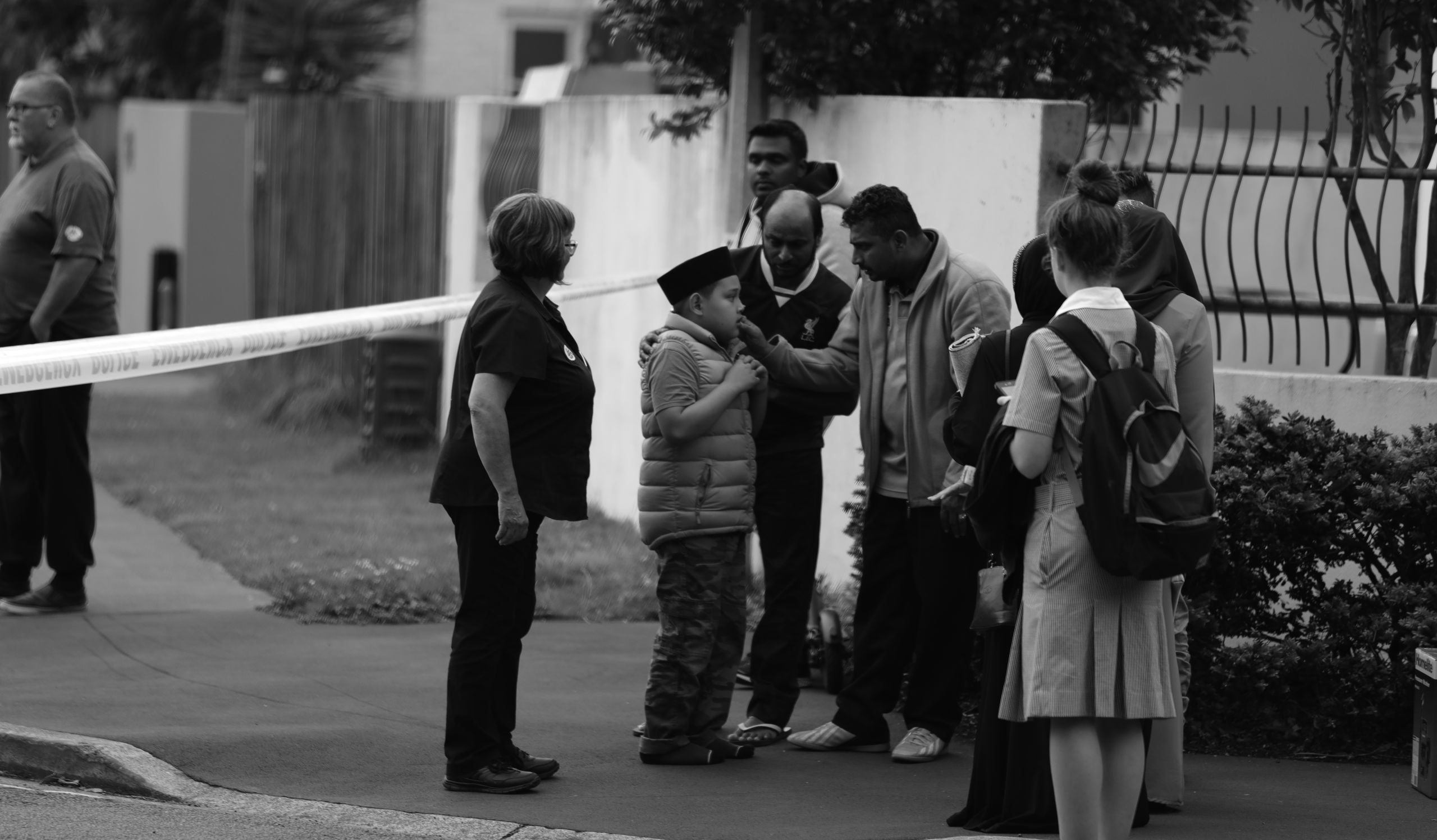
Jennifer Paterson (left, in black) helps reunite a young boy with his family
Jennifer Paterson (left, in black) helps reunite a young boy with his family
In their respective safe havens, the groups of strangers - in the aftermath, Paterson can’t even remember all the names - sat together as the afternoon passed and Christchurch remained in lockdown. “None of the women knew whether their partners were dead or alive. We sat there and we talked.” Barb rummaged in a cupboard and found some nappies for Majda El Hajji’s baby. Someone turned the news on and the young boy Paterson had picked up in her car spotted his father on TV being taken into hospital - injured but alive.
At Cathy White’s house, the lounge became a hubbub as the three women there called person after person, trying to find out what on earth was going on. In a short time, they were hearing that six people, seven people, more, were dead. “Initially I was thinking we need to be taking this all with a grain of salt,” White said. “But subsequently piecing it all together, their information was really accurate.”
Trapped in the house, White felt useless. “I was literally hopping from one foot to the other for hours, just wishing I could do more.”
Abdiwahab and the other women didn’t see it that way. They’ve stayed in touch since and asked earlier this week if they could stop by to thank her properly. “I’m happy if I was able to be of assistance at all but I don’t feel any need for recognition,” White said. “When you’re on the spot you don’t think about it, do you? It seems almost instinctive.”
When the lockdown was lifted later in the evening, Paterson and her husband dropped some of the women home. It was not until she got home herself that she “fell to pieces”.
She left the house for the first time on Monday, 10 days after the shootings, and on Tuesday she was reunited with El Hajji, who had been trying to find her ever since. "I want to say thank you,” El Hajji said. “Though thank you is nothing, really."
Nigel Gardner & Carl Pomare

Seconds before Jennifer Paterson arrived on Deans Ave, Carl Pomare and his colleague had been passing the mosque in a work van. “We heard rapid fire, semi-automatic shots being fired, and we saw these people hit the ground.”
Nigel Gardner, who was on his way to the mechanic, arrived at the same time. From his position, he could see the gunman standing in the mosque driveway, shooting people as they fled.
“[I] stopped my car, put the hazards on … grabbed my phone as I got out of the car and called 111.” The shooter was close enough to turn and look at Gardner briefly, but did not shoot at him. “I didn’t think about a lot at the time - I just wanted to see if [the victims] were okay.”
Pomare and his workmate formed a cordon across the street to make sure people would not stumble onto the scene. Then they turned their attention to the injured people around them.
“The first guy we saw lying on the ground, he’d been shot in the back… There were about five people on the footpath.” He remembers one little girl. “She was about five, she’d been shot, and her father… We managed to get her in the back of one of the vehicles of one of the people who was helping and get her to the hospital before the ambulance even arrived. She was critical.”
Gardner remembers her too: “She never made a sound - she was past pain.” Another driver who stopped had a first aid kit, Gardner said. “He grabbed that and we went around with pressure bandages and just tried to stop the bleeding.”
The minutes seemed to drag by as the men waited for police and then paramedics to arrive, Pomare said. “The guy my worker was nursing, he passed away in his arms.”
It was a vulnerable feeling, out in the open, with no idea where the gunman had gone. “But in a situation like that you don’t think about your own self-preservation, you think about the people who are lying on the ground in front of you.”
He estimated they stayed for an hour and a half, assisting police with the cordon until reinforcements arrived.
Gardner is still grappling with what he saw. “I’ve been really lucky - I’ve got a lot of good friends and family who’ve been helping me the last few days, just processing it.”
Abdul Aziz & Mian Naeem Rashid
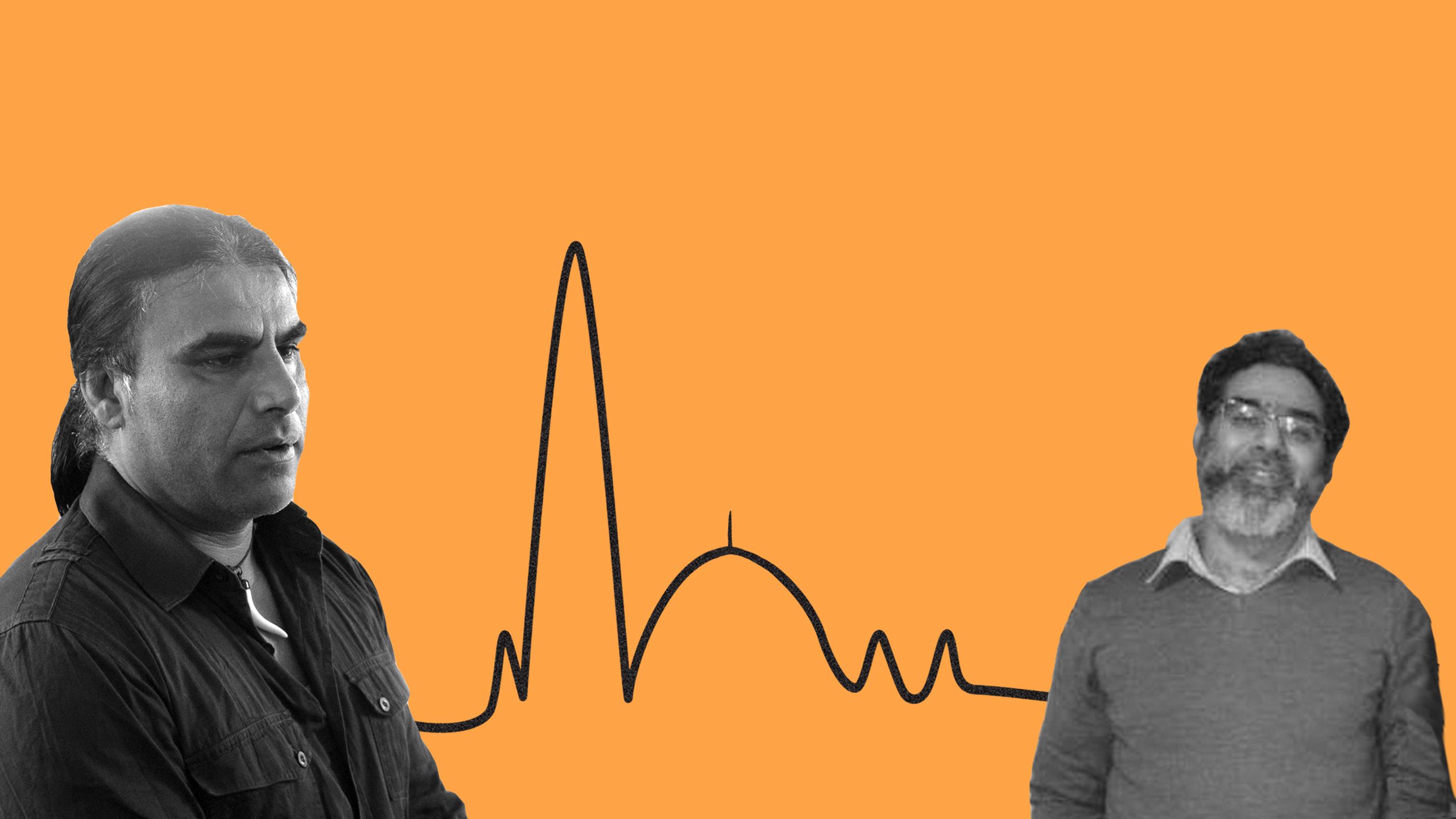
An eftpos machine is an unlikely weapon of resistance. Yet it was all Abdul Aziz had to arm himself with when he realised he and fellow worshippers at Linwood mosque were under attack.
Ignoring his children who screamed at him to come back inside, Aziz charged after the gunman into the mosque car park. “Who the hell are you?” Aziz yelled. The gunman replied with foul language and a hail of bullets.
Aziz found a gun lying on the ground but the cartridge was empty. So he did something reckless - he called out to the man. "I said, 'Look! I'm in the car park - come this way, come this way!'” Aziz’s only aim was to take the gunman’s attention away from the mosque. “Even if I got shot that's all right, as long as we could save some other lives."
Seeing the gun, the shooter scurried back to his car. Aziz launched the gun at the car like a javelin. “His window blasted and he got really shocked - he thought I had shot at him or something. And then he just … drove off."
Aziz was not the only one who attempted to stop the gunman. Outside Al Noor, Pakistan national Mian Naeem Rashid reportedly also confronted the shooter. His act of bravery was fatal: he was among the 50 shot dead.
Pakistan Prime Minister Imran Khan said Rashid’s courage would be recognised with a national award. In Avondale, Auckland, Rashid’s gentle face already stares out from a mural painted to honour the selfless acts of that day. “Remember the heroes,” it says.
The only recognition the gunman would ever receive was as a coward, Aziz said. “I could see the fear in his eyes when he was running to his car. You'll never be a hero by killing people, you can be a hero by saving lives."
Reporting:
Kate Newton, with contributing reporting from Lisa Owen, Nita Blake-Persen, Madison Reidy, Matthew Theunissen, and Katie Todd.
Photographs:
Simon Rogers, Katie Todd, and supplied.
Editor:
Veronica Schmidt
Design:
Scott Austin
Art Direction:
Dave Wright


